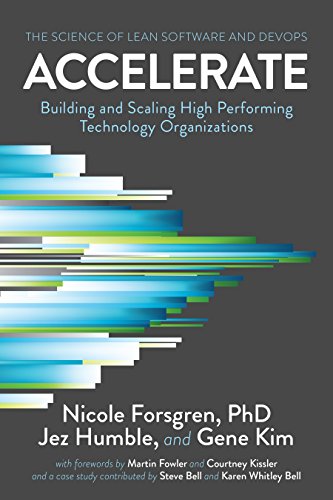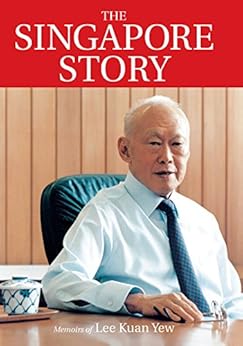My friend, mentee and fellow ex-Googler Paulo Lai joins me for this blog post today as we discuss some of the recent books we’ve read and liked. Paulo and I love to read non-fiction books about business, technology, and self-improvement and we’re always sharing book recommendations with each other via email. So we thought we’d share some of our recommendations with the rest of the world.
We read an awful lot of books, so this could be the first in a long series!
The Lost Art of Listening
The Lost Art of Listening, Second Edition: How Learning to Listen Can Improve Relationships
Paulo
I recommend The Lost Art of Listening even though the focus of the book is on relationships. If you can listen to your parents for example when you disagree, then you can probably listen to most other people.
From that I learned that to listen well, you need to put the other person ahead of yourself, at least while you are listening and that it’s more than ok to say that you’re not ready to really listen yet. Also that nagging is a sign that the other person really wants to be heard and acknowledging them is very helpful. Oh and that I’m not 10% as good of a listener as I thought I was.
Once I found out by accident how powerful really listening to someone can be. I was on a plane and decided to be polite and talk to the woman sitting next to me, without any agenda. I paid attention to what she was saying and shared my thoughts as part of the flow of the conversation. Later she sent me an email telling me how big an impact I had on her and it realized that came about because I focused my energies on listening, not on pushing my point of view. Think about how much helpful that would’ve been for my relationships if it did the same for someone I was close to!
Trish
I got most of the way through The Lost Art of Listening and quite liked it. People already tell me that I’m a good listener, so I didn’t expect to get as much out of it as I did. It not only has advice for how to be a better listener, but also advice for how to be heard.
At a recent talk I gave, someone asked me what’s the one piece of advice I would give to CEOs for running their company. My advice was listen. Really listen. This seemed to make a big impact on the audience as half the follow-up discussion after my talk was about this advice. This book has a good description of what I meant by “really listen”.
Here are a few of my highlights.
“Having an understanding attitude doesn’t mean presuming to know a person’s thoughts and feelings. It means being open to listening and discovering.”
“One of the unfortunate things we learn along with being “polite” and not being “selfish” is not to say directly what we want. Instead of saying “I want …,” we say “Maybe we should … ” or “Do you want … ?” When we’re taking a trip in the car and we get hungry, we say “Isn’t it getting late?””
“Listening puts a burden on the listener. We feel the weight of the other person’s need to be heard. Attention must be paid.”
Radical Candor
Radical Candor: How to Get What You Want by Saying What You Mean
Paulo
A must read for all managers. Providing honest, actionable feedback is one of three things you must do well as a manger and this has been the best book I’ve found on how to do it. It explains why it’s so important to provide timely, honest feedback that can’t be misunderstood, ideally while still caring about them as a person. It really helped me understand a lot more about how Google came to manage their engineers they way it does, the flaws with it, etc as well as better understand management in general. For example it explained why you shouldn’t make a fuss about promotions, you need those who are not interested in promotions to continue to work well, and anyone promoted has had enough reward and can do their own private celebrations.
Trish
I thought Radical Candor was very good. The examples really helped me understand good ways to give feedback and encourage others to give feedback as well. I had this book in mind when I recently gave a workshop and I really wanted critical feedback from my attendees so I could improve the course. By asking for feedback in the ways described in the book, I ended up receiving a whole lot of really useful critical comments. Not to mention I received some really positive feedback too which looks great on my website!
“WHEN YOU CRITICIZE someone without taking even two seconds to show you care, your guidance feels obnoxiously aggressive to the recipient. I regret to say that if you can’t be Radically Candid, being obnoxiously aggressive is the second best thing you can do. At least then people know what you think and where they stand, so your team can achieve results. This explains the advantage that assholes seem to have in the world.”
“If you’re not one of those people who instinctively welcomes criticism as an opportunity to improve, you’ll of course feel a strong urge to act defensively—or at the least to explain yourself. This is a natural response, but it pretty much kills any chance that you’ll get the person to offer you the gift of candor again.”
Paulo’s bonus book – Accelerate: The Science of Lean Software and DevOps
Accelerate: The Science of Lean Software and DevOps: Building and Scaling High Performing Technology Organizations
One of the best reference available to help convince others of the value of DevOps, it has some useful comments about how to write great surveys and why they’re often better than direct collection of data as well a run down of some anti-patterns you should avoid within your company.
Trish’s bonus book – The Singapore Story: Memoirs of Lee Kuan Yew
The Singapore Story: Memoirs of Lee Kuan Yew
My Dad grew up in Singapore in the 40’s-60’s, so it was interesting to gain a little insight into what his life was like back then. He said men used to come into his house to sharpen machetes then they would head back out to the riots. It’s hard to imagine that Singapore when all I’ve ever known is the modern, rich, clean, safe Singapore.
Lee Kuan Yew was a master politician, and it made me think about how politics is all about building relationships. I reflected on how it connects to politics in organizations. I might read a book about Obama next.
I bought a copy of the book and its sequel for my Dad for Christmas, at his request. He has already read more than I have. He says the first book is much more interesting, and the second book is great for curing insomnia.
“The people as a whole must have self-respect and the will to strive to make a nation of themselves. The task of the leaders must be to provide or create for them a strong framework within which they can learn, work hard, be productive and be rewarded accordingly. And this is not easy to achieve.”
Our general observations on reading and learning

In our recent emails, Paulo and I reflected on our different reading styles and how we manage to get through so many books so quickly. Paulo prefers audiobooks, while I prefer to read on my Kindle Paperwhite.
Trish
Damn, I’m jealous of how many books you get through! I’m slow because I read them on my Kindle Paperwhite and highlight notes as I go. I usually get about 70% through and drop them, but I’m learning to be okay with that since it’s usually enough to get the gist of most non-stop fiction books.
Paulo
I seem to go through books very differently to you. For me it’s much more to understand a space well enough to know how to ask decent questions later on and less about knowing something deeply. I have less than one highlight per book I’ve read! It’s no surprise that it’s a lot less taxing for me to get through so many, at the same time I’m feel that I do need to get through the whole book, blinkist is helpful, but it’s too concise. I find it’s much better for me to rush through the full book.
Trish
That’s probably a good way to approach most books anyway and it’s the reason I only get 50-70% through most of them. By the time I’ve gotten that far, I usually feel like I’ve got what I needed and they’re just reiterating the stuff over and over again in a different way. I have trouble remembering things so that’s why I highlight so much, not to mention that I’d like to be able to use quotes in blog posts and presentations later if I need to. It’s interesting to see how different people learn from books.






One thought on “Great Books: Radical Candor and the Lost Art of Listening”
Trish, on the matter of how far you get through a book, you said “…it’s the reason I only get 50-70% through most of them. By the time I’ve gotten that far, I usually feel like I’ve got what I needed and they’re just reiterating the stuff over and over again in a different way.”
Different readers react differently to messages; and especially when you are dealing with dead tree versions of books. Certainly the advice I had from various writers over the years has been to re-iterate key messages in different ways so that the greatest number of readers “get it”. That’s probably where your 50-70% experience is coming from. For me (a firm adherent to the dead tree format!), I usually spot this and applaud the author for doing their job properly when it’s clear that this is what they are doing.
Personally, I usually finish a book I’ve started (though there have been exceptions, which I point out in my reviews). Excessive repetition can therefore be a bit of a sin in my view, especially if it’s done clumsily. It’s usually clear when the repetition is message targeting and when it’s just poor planning, padding or bad technique.
Comments are closed.